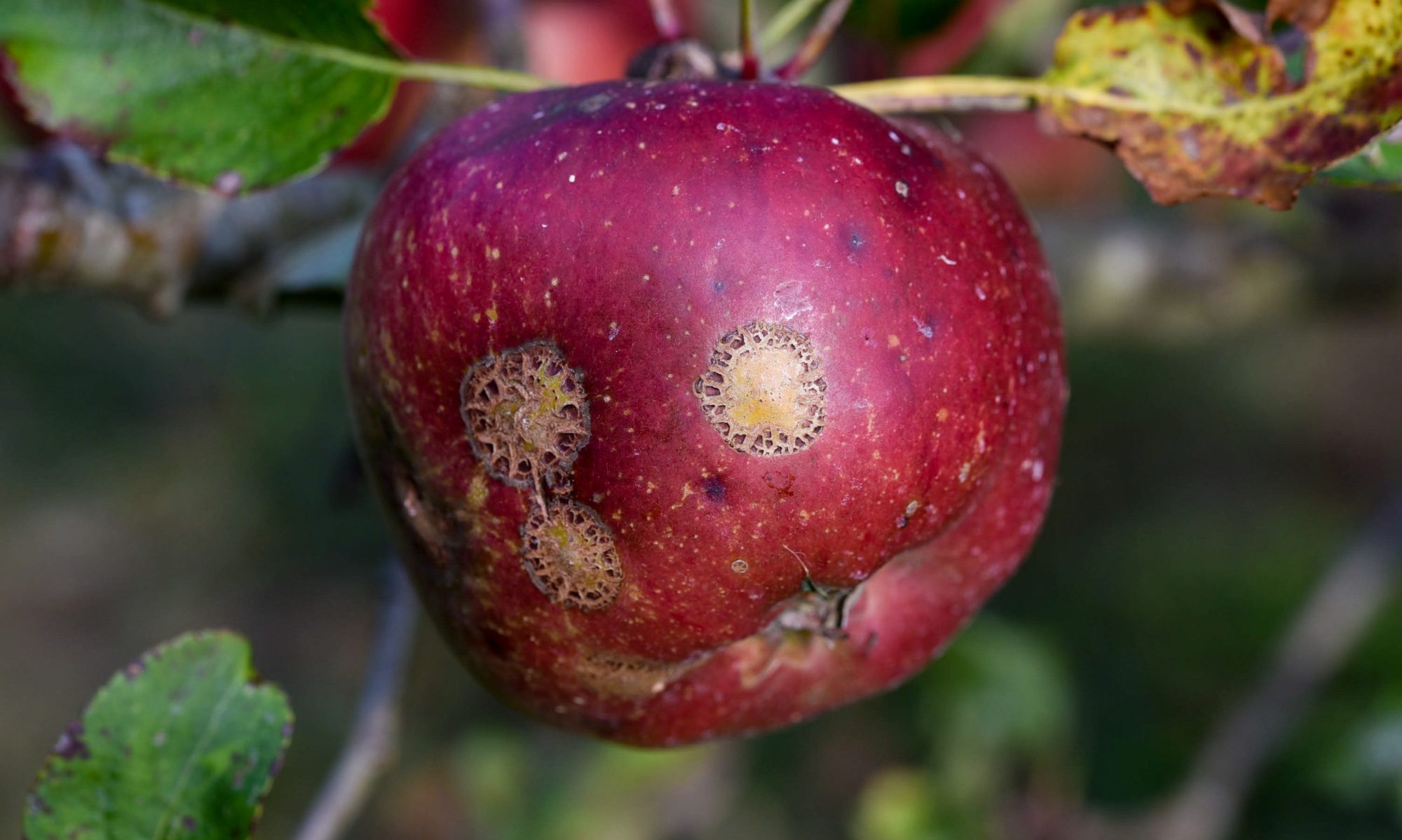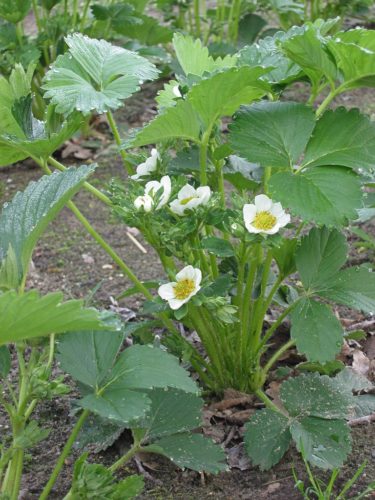Strawberry is a genus of flowering plants in the rose family.
You are viewing the mobile-adapted version of the page.
The one for tablets, laptop and desktop also provides general information, such as origin, toxicity and cultivation.
Strawberry ( Fragaria ) is a genus of flowering plants in the rose family (Rosaceae).
A strawberry is an aggregate fruit. It resembles fruit, but from a botanical point of view the strawberry is not. Normally fruits develop from the ovary and seed. If other plant parts are part of the fruit, it is called an aggregate fruit.
With strawberries, the flower bed participates in the fruit development. The seeds grow on the flower bottom, which is why they are on the outside of strawberries.
Cuttings taken from the runners in late summer can be planted in a new bed. Do this before mid-October, so that the cuttings still have a chance to root well. If the strawberry bed is in a very wet spot, it is better to plant the cuttings in pots and let them overwinter in the greenhouse or conservatory. They can be planted out in the spring. It is customary to leave the runners until the new spring.
A bed of strawberries can be covered in winter with a mulch layer of compost or straw. This way, the plants do not dry out in a bleak northerly wind. In March, the semi-digested material can be worked into the soil between the plants.
Bugs
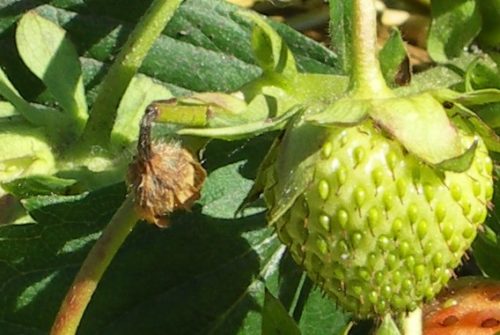
Flower buds and incipient fruits wilt: Strawberry-blossom weevil (Anthonomus rubi).
Dot-shaped spots on the leaf; mites on the underside: Red spider mite (Tetranychus urticae).
Soft spots develop in ripening strawberries, then rotten spots: Spotted wing drosophila – SWD (Drosophila suzukii).
Whiteflies colonize the underside of the leaf. They feed on leaf sap and secrete honeydew: Cabbage whitefly (Aleyrodes proletella) . Sooty mold then forms on the honeydew.
Strawberry plant does not grow, root system shows many small root knots (galls): Northern root-knot nematode (Meloidogyne hapla).
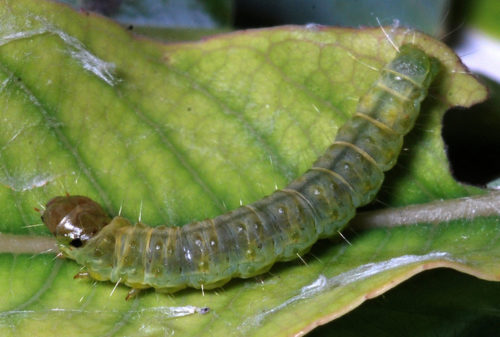
Leaf curl and damage to leaf, flower bud and stems: Carnation tortrix larvae (Cacoecimorpha pronubana) .
Fungi & diseases
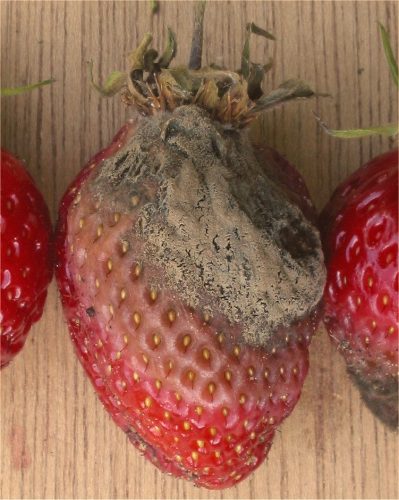
Grey mold veil over the fruits: Gray mold (Botrytis ssp.).
Black mold on honeydew secreted by cabbage whiteflies: sooty mold.
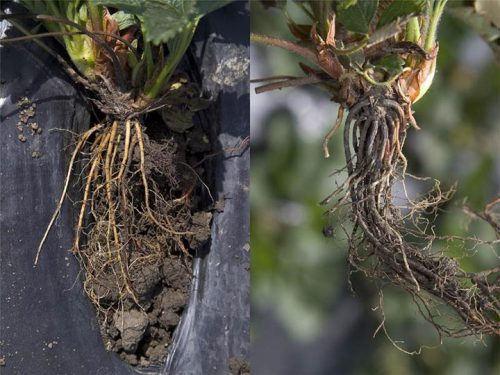
Leaves turn yellow or bronze and wilt, roots turn red and strawberries become bitter: Red stele (Phytoph
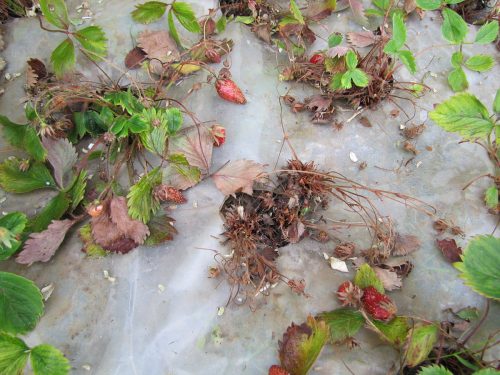
The leaves of the strawberry plant become dull, after which the whole plant turns yellow and wilts: Verticillium wilt (Verticillium spp).
Other
Strawberry plants produce a lot of leaves, but do not flower: they are in a shady spot or they are over-fertilized. Nitrogen promotes leaf growth but inhibits flowering.
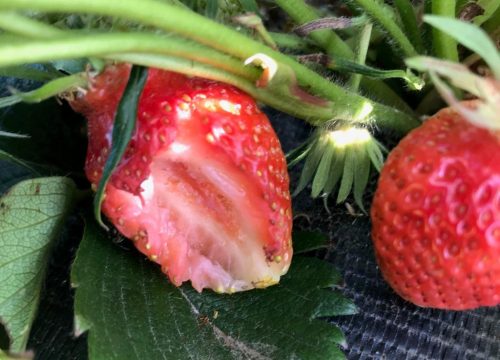
Holes in ripening strawberries: snails and slugs.
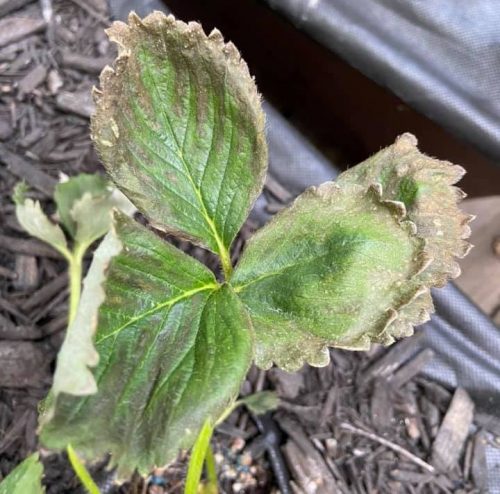
Leaf dries up, turns brown during a period of drought and a lot of sun: leaf burn.
